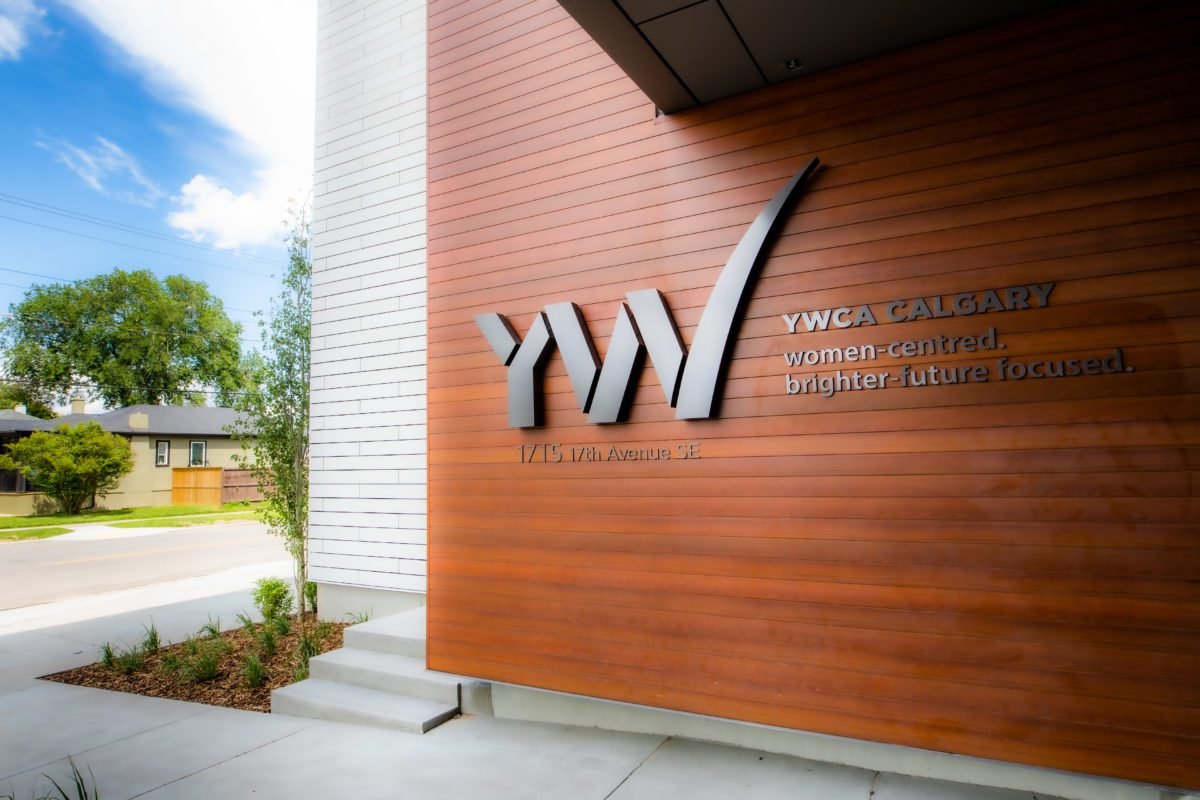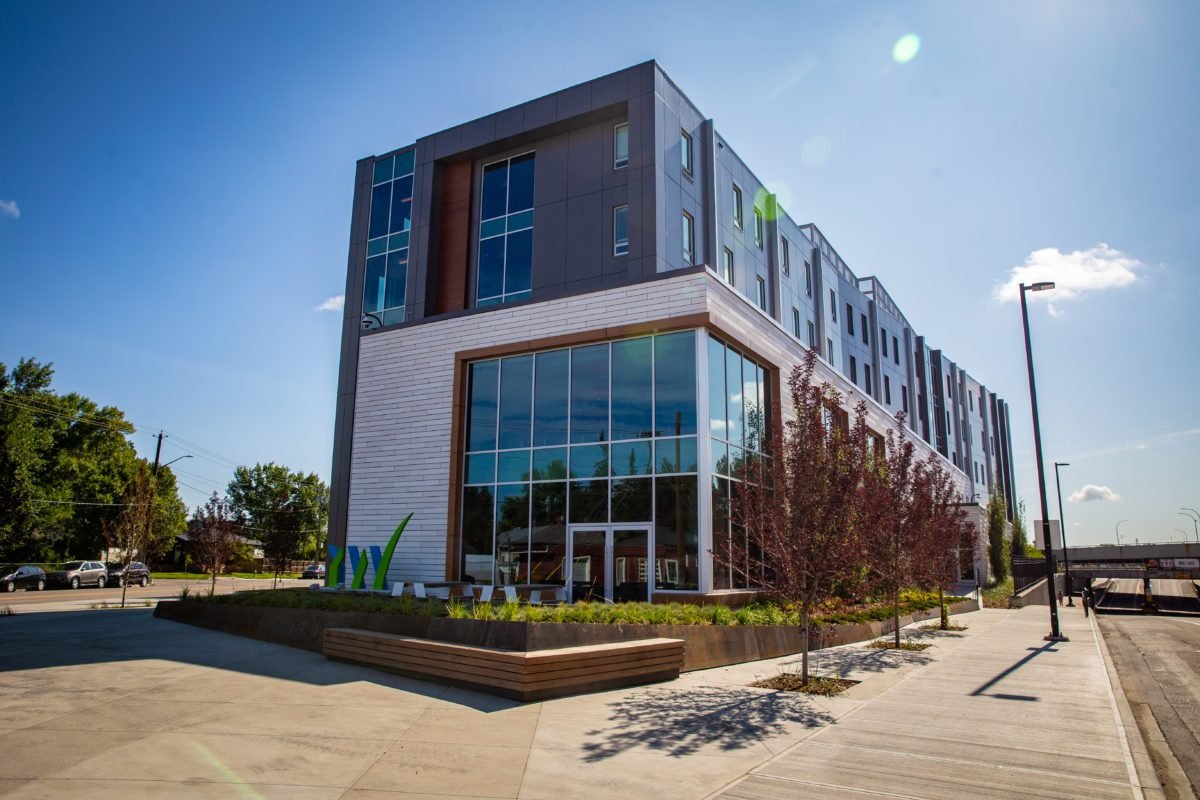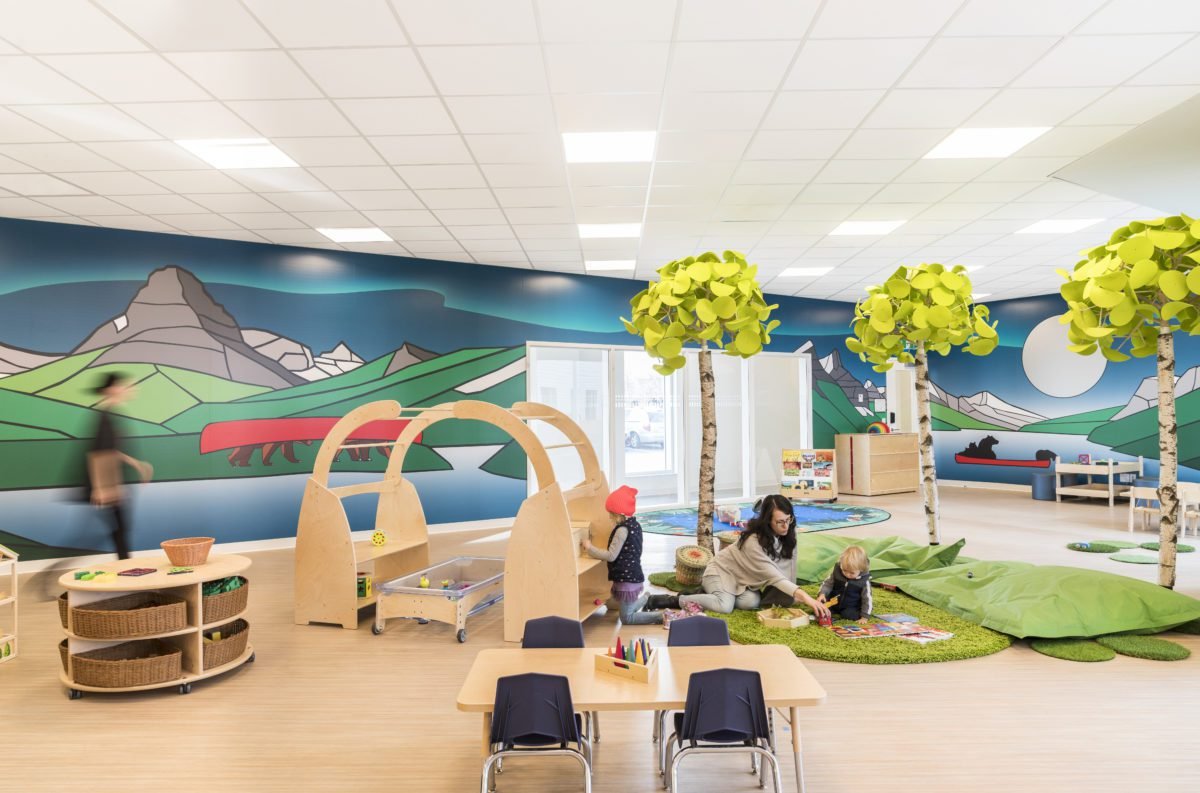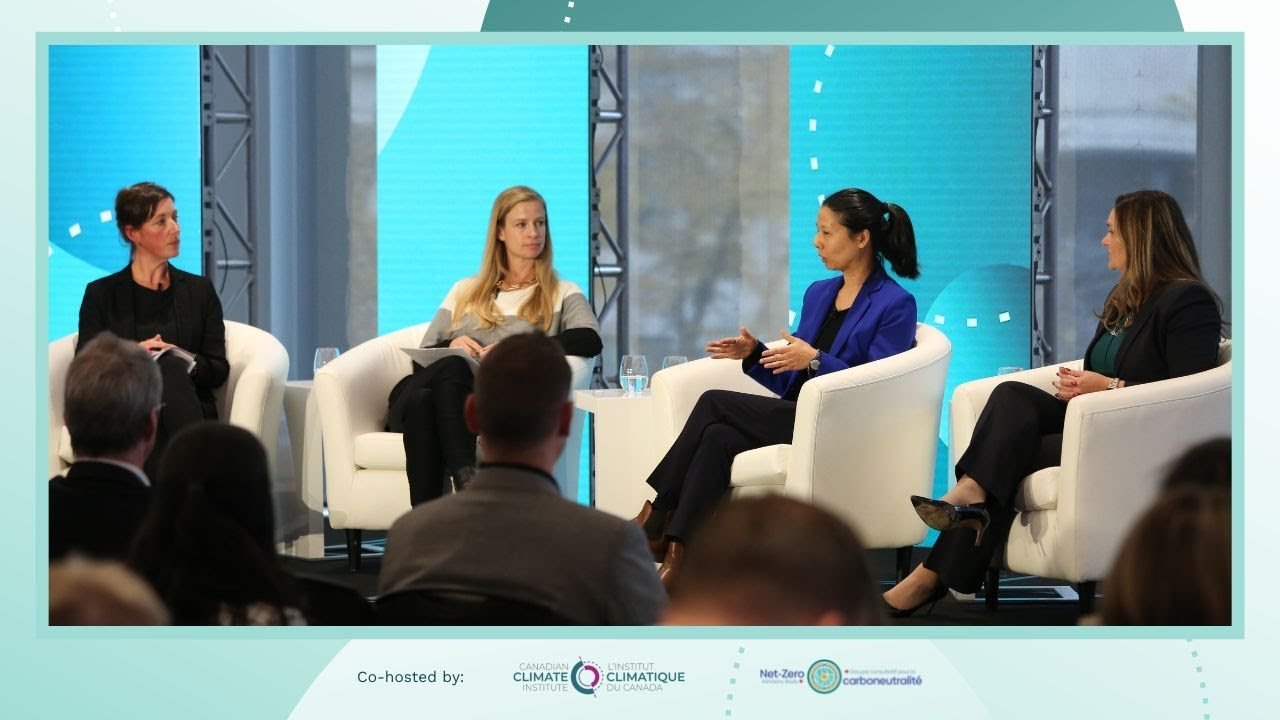How Women Spark Climate Action in Canadian Cities
Climate strike in Winnipeg, MB (Sep 2019). Photo by Nicole Roach
As global leaders adopt pledges and net-zero targets, on Earth Day 2023, we are exploring the endless ways women advance climate change adaptation and mitigation in Canadian cities.
Women have long been keepers and healers of our planet. Women are expected to take on the burden of caring for our shared home while battling multi-generational trends of unsustainable resource extraction, land grabbing and persistent gender gaps.
Ecofeminist perspectives highlight the interconnectedness between social and environmental issues and recognize that climate change is caused by capitalism, colonialism, and patriarchy - the same systems that have historically oppressed women and other marginalized groups. Ecofeminism advocates for a more holistic, inclusive approach to sustainability that values the diversity of life and seeks to heal vulnerabilities and inequalities within and across communities.
Gendered climate challenges on Turtle Island
Women, Indigenous peoples and low-income communities remain the ones most susceptible to the impacts of climate change.
An overview of climate-sensitive health risks, their exposure pathways and vulnerability factors. Source: World Health Organization
Researchers suggest that women may be more at risk of mortality and heat-related illness from heat waves compared to men because they have higher core temperatures after ovulation, higher cardiovascular strain, bigger surface area to mass ratio and reduced sweat production, meaning they heat up more quickly. Pregnant individuals are at an even higher risk of complications - elevated blood pressure, stroke, eclampsia, and preterm labour - due to heat and air pollution.
Moreover, in Canada, women often act as unpaid caregivers, running errands and transporting their kids and dependents around in all seasons and conditions. During and after climate-induced emergencies, these caregiving responsibilities become even more demanding, which limits women’s own ability for adequate disaster response.
Urban environments in particular demonstrate the intersectional nature of climate change effects on women. Systemically, socio-culturally, and structurally, cities are discriminatory spaces that frequently see increased rates of harassment, and sexual and gender-based violence. In the event of climate disasters, women and girls’ exposure to these outcomes is further amplified by displacement, violence, and civil unrest.In Toronto, low-income women face disproportionate negative impacts from floods as they are more likely to rent and occupy basement apartments which makes them ineligible for government infrastructure subsidies. Indigenous urban-based low-income households, predominantly led by single mothers, are overly reliant on store-bought processed foods, soup kitchens and food banks. This exacerbates their vulnerability to climate-related food insecurity caused by transit, supply chain and energy systems disruptions due to rain, flooding, heat waves, and winter ice storms.
Female municipal leaders turning tables on climate change
With around 60% of carbon emissions generated in cities, female municipal leaders play an important role when it comes to environmental protection, clean energy transition and climate resilience.
Under the former Mayor Lisa Helps’ watch, the city of Victoria, BC, declared a climate emergency and adopted a range of strategies and action plans to tackle greenhouse gas emissions from transportation and reduce consumer waste, as well as ensure early adaptation and preparedness for climate-related disasters.
The newly elected Mayor Jyoti Gondek has promoted and approved Calgary’s first Climate Strategy, addressing (among others) high residential emissions through net-zero construction and energy-efficient building retrofits.
Bonnie Crombie, Mayor of Mississauga, visiting Erthos - a women-led sustainable materials company. Source: Bonnie Crombie
Further in the Prairies, Mayor Sandra Masters’ office has recently advanced the Renewable Regina vision through a detailed Energy & Emissions Reduction Action Plan, while also taking concrete steps by introducing a municipal electric transit fleet. Similar strategies and roadmaps are now in place and reinforcing shared accountability for climate change mitigation and adaptation in many large- and medium-sized urban centres due to the outstanding efforts of Bonnie Crombie (Mississauga, ON), Valérie Plante (Montreal, QC & globally), Dawn Arnold (Moncton, NB) and many others.
Mentorship and youth empowerment are essential ingredients in climate change mitigation and adaptation. Active in Toronto, Montreal and Vancouver, the C40 Women4Climate Mentorship Programme matches mayors, city officials, and committed experts from the business sector, international and civil organizations with emerging female climate leaders. The program offers an avenue for mentors to share their knowledge and for emerging women leaders to grow their expertise and influence in mobilizing for climate action within their community.
Beyond strategizing - women-led climate efforts on the community level
Everyday women across Canada are also responding to the call to step into the forefront of climate action.
Community garden in Vancouver (Photo by: Nicole Roach, Vancouver, BC)
Canadian women boost climate entrepreneurship in various ways, challenging traditional gender roles and reimagining their place in the sustainable agriculture sector. Relationship with food and land in urban settings gets a makeover through initiatives such as Leftovers in Alberta cities, organic farms in suburban Vaughan, ON, or Compost Education Centre in Victoria, BC. These solutions directly reduce the carbon footprint from land use, waste and shipping produce, while tackling the food insecurity crisis.
All-female and women-led professional teams foster sustainable urban design and energy-efficient construction. Unique projects that apply both gender and climate lenses to public and private spaces, while also addressing the challenges of homelessness, safety and economic empowerment, have been implemented in Hamilton and Peterborough (ON), Halifax, NS and other cities.
YWCA Calgary - trauma-informed facility designed with LEED and WELL Standards in mind by an all-women architectural team at Kasian. Source: YW Calgary
Led by both Indigenous and settler women, cleantech startups and projects pop up across the country, closing the cradle-to-cradle loop across industries and accelerating a fair transition to renewable energy. Weaving into professional networks such as Women in Sustainability Canada or Women in Renewable Energy has a multiplier effect on capacity building and knowledge sharing.
Women-led panel discussion “Capital markets in the Net Zero Transition” in Ottawa, ON (Oct 2022). Source: Canadian Climate Institute
Climate Organizing has been steadily transforming into an independent field within community development. Unsurprisingly, most prominent grassroots community organizations are founded and governed by women: for example, Indigenous Climate Action, The Climate Justice Organizing Hub (Montreal, QC), The Climate Action Network (Ottawa, ON), and UBC Climate Hub (Vancouver, BC).
How you can join the climate movement in your city
No matter your occupation, income situation or family commitments, there are tons of opportunities to become inspiring climate warriors.
Not working in the environmental sector? Every job is a climate job!
Whether you are a talented tradesperson, a numbers wizard, a mindful yoga instructor or a creative communicator, you have the power to activate your work environment to contribute to climate change adaptation and mitigation. Check out Project Drawdown for some tips.
Strive for sustainable housing.
Government financing and rebates are available in most provinces and territories and at the federal level to boost the energy efficiency of residential properties. Even small interventions can achieve a significant reduction in the carbon footprint of your owned or rented home. Learn more about financial incentives in your province or territory.
Know your climate policy.
Find out if your city is on track with its climate goals and takes practical steps across policy areas. Watch out for proposals that promote urban sprawl, loss of green canopy, or car-centric districts with lots of parking (aka heat islands). Not happy with what you’re seeing? Let your elected politicians know you demand climate action. Provide feedback to the city administration on development initiatives, display a lawn sign, call your councillor, contact your MLA, or sign a petition.
Dismantle gender stereotypes.
Invest time, money or knowledge in female leadership and entrepreneurship. Women are proven to play a critical role in driving economic growth and creating jobs with positive social, environmental, and climate spillovers. Eliminating sexism in municipal politics, corporate settings and our minds and hearts, one conversation at a time, will benefit the overall well-being of our communities.
Most importantly - Seek community support.
Reach out to a local Climate Hub, Citizens’ Climate Lobby chapter or another grassroots organization in your city to get involved and meet like-minded people. Online initiatives like Talk Climate to Me in Canada and many global communities offer a safe space to process complex climate emotions and take meaningful steps towards healthier neighbourhoods, cities, regions, countries, and Planet.
Community garden under bridge (Photo by: Nicole Roach, Vancouver, BC)
Key Sources & Further Reading:
Ecofeminism:
Alexa Keeler (Slice): What is Climate Feminism — and Why Indigenous Women Should Lead the Solutions
Consortium on Gender, Security and Human Rights: Ecofeminism. Selected Resources
Earth.org: Ecofeminism: Where Gender and Climate Change Intersect
The Ecopolitics Podcast: Ecofeminism and Queer Ecology
By Bethany Wilson, Carol Baedi, Rosalie Le Grelle (Degrowth.de): An Ecofeminist Take on the Paris Agreement
Climate change impacts:
Canadian Research Institute for the Advancement of Women & Alliance for Intergenerational Resilience: Women and Climate Change Impacts and Action in Canada Feminist, Indigenous, and Intersectional Perspectives
The Women’s Environment and Development Organization (WEDO): Climate Change and Gender in Canada: A Review
Smart Prosperity Institute: Shed Light, Build Resilience. Unearthing Evidence on Climate Change, Gender, And Livelihoods in Canada
World Economic Forum (Vaishali Sinha): We can solve climate change – if we involve women
London School of Economics (Bullock&Priebe): Global cities will be epicentres of gendered climate insecurity: why we must foreground women in urban climate security policy
Policies & Actions:
Indigenous Climate Hub: Urban Indigenous-Led Climate Adaptation Pathways
Intact Centre on Climate Adaptation (University of Waterloo): Irreversible Extreme Heat: Protecting Canadians and Communities from a Lethal Future
Climate Atlas of Canada: Cities
Government of Canada. Climate Action Map
Government of Canada: Financial Incentives for Energy-efficient Homes
ICLEI Canada: Equitable Climate Adaptation: Considerations for Local Governments
Pembina Institute: Four Indigenous women to watch in Canada’s fight against climate change
Women in Sustainability Canada
Megan Bennett: Plugged In podcast
Chatelaine (Nicholas Hune-Brown, Emily Landau and Jason McBride): 10 Inspiring Canadian Women Who Are Saving The Environment
Climate & Mind: Exploring the Relationship between Climate Disruption, Human Behaviour & Human Experience










